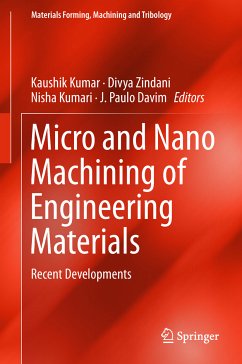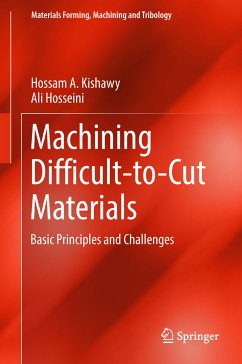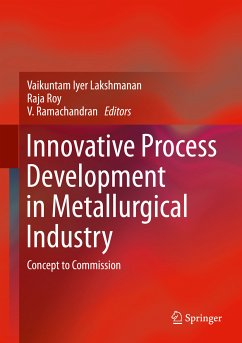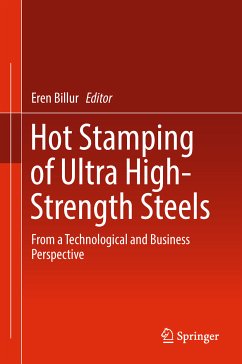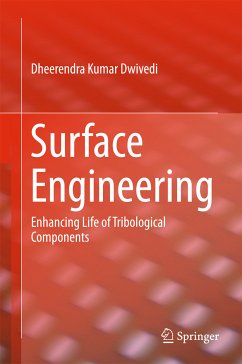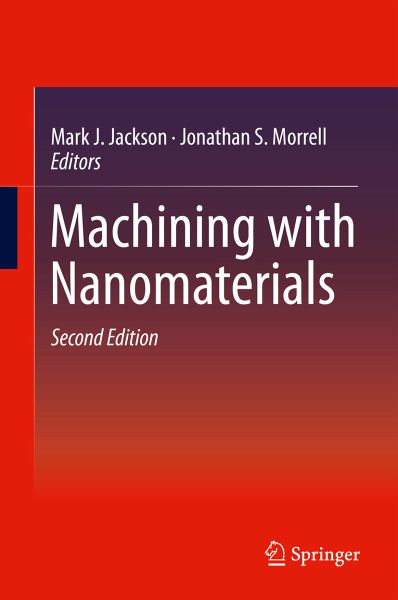
Machining with Nanomaterials (eBook, PDF)
Versandkostenfrei!
Sofort per Download lieferbar
72,95 €
inkl. MwSt.
Weitere Ausgaben:

PAYBACK Punkte
36 °P sammeln!
This book focuses on the state-of-the-art developments in machining with nanomaterials. Numerous in-depth case studies illustrate the practical use of nanomaterials in industry, including how thin film nanostructures can be applied to solving machining problems and how coatings can improve tool life and reduce machining costs in an environmentally acceptable way. Chapters include discussions on, among other things:Comparisons of re-coated cutting tools and re-ground drillsThe modeling and machining of medical materials, particularly implants, for optimum biocompatibility including corrosion re...
This book focuses on the state-of-the-art developments in machining with nanomaterials. Numerous in-depth case studies illustrate the practical use of nanomaterials in industry, including how thin film nanostructures can be applied to solving machining problems and how coatings can improve tool life and reduce machining costs in an environmentally acceptable way. Chapters include discussions on, among other things:
The importance of proper design of cutting tools, including milling tools, single point turning tools, and micro cutting tools is reinforced throughout the book. This is an ideal book for engineers in industry, practitioners, students, teachers, and researchers.
- Comparisons of re-coated cutting tools and re-ground drills
- The modeling and machining of medical materials, particularly implants, for optimum biocompatibility including corrosion resistance, bio adhesiveness, and elasticity
- Recent developments in machining difficult-to-cut materials, as well as machining brittle materials using nanostructured diamond tools
- Spindle Speed Variation (SSV) for machining chatter suppression
- Nano grinding with abrasives to produce micro- and nano fluidic devices.
The importance of proper design of cutting tools, including milling tools, single point turning tools, and micro cutting tools is reinforced throughout the book. This is an ideal book for engineers in industry, practitioners, students, teachers, and researchers.
Dieser Download kann aus rechtlichen Gründen nur mit Rechnungsadresse in A, B, BG, CY, CZ, D, DK, EW, E, FIN, F, GR, HR, H, IRL, I, LT, L, LR, M, NL, PL, P, R, S, SLO, SK ausgeliefert werden.



